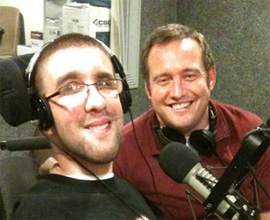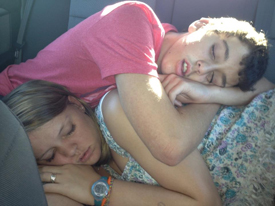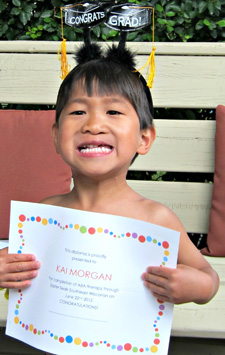Helping older adults and people with disabilities get going
by Beth Finke
I am happy to have Lucinda Shannon, MPA, the Information Specialist for Easter Seals Project ACTION, return to us with another great guest blog post today.
Learn about our “Get Going!” guide
by Lucinda Shannon, MPA
Last month NorthJersey.com. published a story about our GET Going! Guide, which helps adults with autism deal with unexpected interruptions in their travel routines.
Mary Leary, vice president, Business Innovation and Easter Seals Transportation Group, was featured in the article along with Linda Walder Fiddle, founder and executive director of The Daniel Jordan Fiddle Foundation. The two of them worked with their teams to develop the pocket-troubleshooting guide after Fiddle heard a young man with autism speak last year at a conference on transportation for people with disabilities.
Transportation for people with disabilities and older adults is a priority for Easter Seals. In addition to the variety of transportation services provided by many of our affiliate offices, Easter Seals’ Transportation Group administers two federally-funded training and technical assistance centers to support people who need assistance with transportation.
The National Center on Senior Transportation (NCST) works to improve and increase transportation services for older adults, and Easter Seals Project Action (ESPA) collaborates with the disability community, transportation providers and human service providers to improve transportation options for people with disabilities.
Both training and technical assistance centers are funded through a cooperative agreement with the U.S. Department of Transportation, Federal Transit Administration. You can visit the NCST website to learn more about senior transportation, and ESPA’s website to learn about transportation for people with disabilities. Browse both sites for publications and resources, and while you’re there, check our calendars for upcoming training events and online courses. If you have questions, you can reach ESPA at 800-659-6428 and NCST at 866-528-6278.







 A guy named Tim Wambach left a message on the
A guy named Tim Wambach left a message on the  I’m a December baby. Those of you with birthdays around the holidays will be able to empathize: birthday presents wrapped in Christmas paper, friends who care more about ringing in the New Year than watching you blow out your candles, people forgetting your birthday altogether. One year even my parents forgot my birthday!
I’m a December baby. Those of you with birthdays around the holidays will be able to empathize: birthday presents wrapped in Christmas paper, friends who care more about ringing in the New Year than watching you blow out your candles, people forgetting your birthday altogether. One year even my parents forgot my birthday! I am celebrating my 30th professional year of providing services and supports to individuals with autism, and when I reflect on the past three decades I realize that one of the things that motivates me most to stay engaged promoting autism services and supports is listening to stories from the experts in the field: individuals with autism and their families.
I am celebrating my 30th professional year of providing services and supports to individuals with autism, and when I reflect on the past three decades I realize that one of the things that motivates me most to stay engaged promoting autism services and supports is listening to stories from the experts in the field: individuals with autism and their families. We at Easter Seals are joining the nation this week in mourning the passing of United States Sen. Daniel Inouye (D-Hawaii). Inouye long championed the cause of justice and equality for all Americans, including people living with disabilities and other special needs.
We at Easter Seals are joining the nation this week in mourning the passing of United States Sen. Daniel Inouye (D-Hawaii). Inouye long championed the cause of justice and equality for all Americans, including people living with disabilities and other special needs. Reading
Reading  Remember the
Remember the